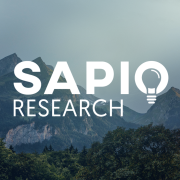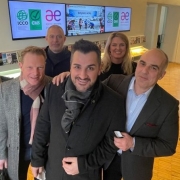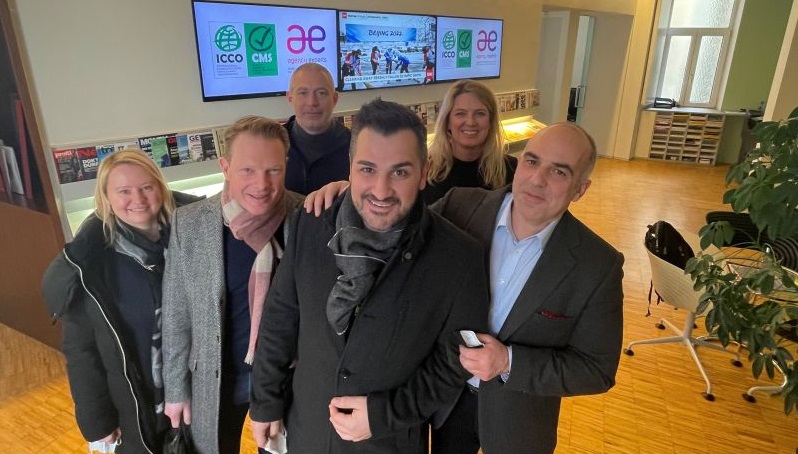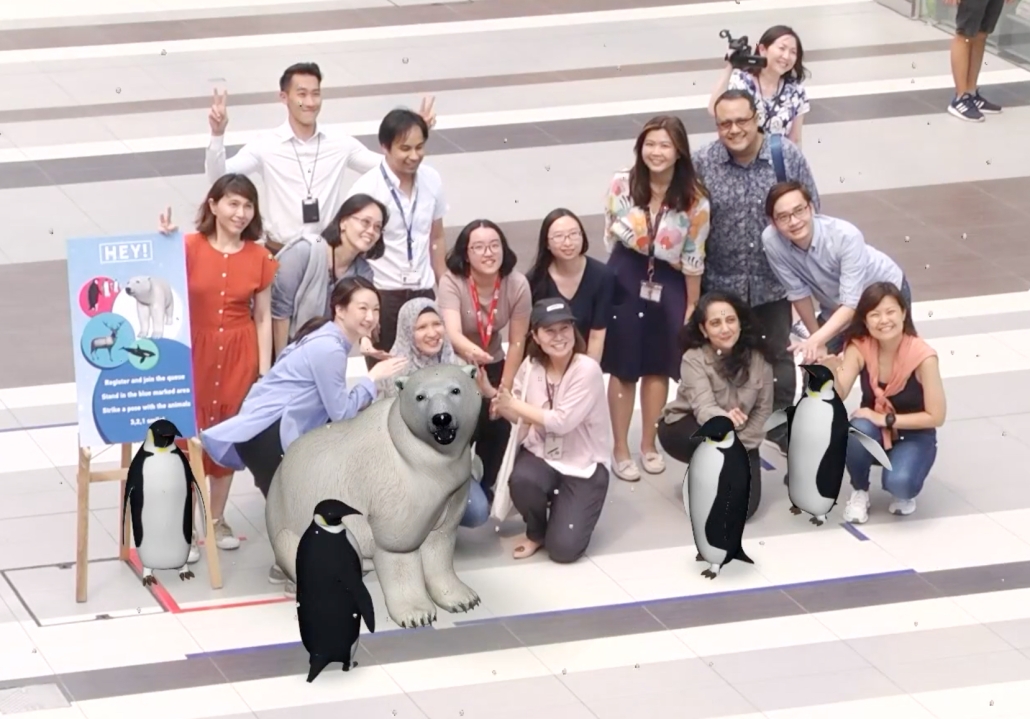
Dr Chiong’s team at NTU Singapore (seen here at a campus roadshow for its augmented reality-enhanced student magazine) has been honoured in every major area of its work with more than 90 awards, including nine international team of the year awards since 2015.
Chief Communications Officer, Dr. Vivien Chiong has been pivotal in Nanyang Technological University, Singapore’s (NTU) transition to its position as one of the world’s leading educational institutions.
Dr. Chiong started out as a journalist due to her love for writing. In time, and following an impressive professional path through media and communications roles in a number of organizations, she joined NTU in 2010.
Since then, the NTU in-house team has received more than 90 awards. Dr. Chiong has also personally won 9 awards, including the 2022 ICCO Global Award for PR Leader of the Year. Amongst innumerable transformational communications strategies, she spearheaded NTU’s transition to increased use of digital tools in communication, including the creation of an augmented reality magazine to reinforce NTU’s “smart campus” branding.
Dr. Chiong also contributes nationally as the Chair of the Science and Technology Branding Taskforce, appointed by the National Research Foundation at the Singapore’s Prime Minister’s Office.
ICCO: You have had an incredible journey from starting as a journalist in Singapore, to leading the communications team at one of the world’s highest ranked universities. Can you tell us what initially attracted you to media and communications and how your views may have changed over your career?
Dr. Chiong: Media and communications is an all-absorbing career and I’m fortunate to be in a job where I truly enjoy the work I do. I started out in journalism because of my love for writing. Initially, it seemed like going into corporate communication was a natural development of my passion for conveying ideas through words, visuals and sound.
After embarking on my postgraduate studies, I became interested in integrating my knowledge of the different aspects of media and communication and to marry theory with practice, and in the strategic use of communication.
I have been in several different industries such as cable television, water and the environment, before moving into the higher education sector. These diverse experiences have helped shape my thinking as a communicator.
For example, working with colleagues at Disney and Cartoon Network in the earlier years of my career, I learnt invaluable lessons about characterisation. Later when I joined Singapore’s national water agency, I created a mascot called Water Wally – as a strategic communication tool for water messages. Today, even after 15 years, Water Wally remains one of the most endearing national mascots in Singapore.
ICCO: Can you tell us about a mentor or someone that inspired you in the early stages of your career?
Dr. Chiong: I have been blessed with good bosses throughout my career, who have always been willing to put their faith in me and are open to my counsel on communication matters. Whilst they may not have been experts in the intricacies of communication, their clear expectations of how they wanted it to help fulfil specific objectives have driven my team and I to stretch ourselves and come up with creative solutions to meet these objectives.
ICCO: Part of your growing legacy is your creative use of digital technology. In a continuously and rapidly evolving technological landscape, how do you identify developments that are going to be impactful in your work?
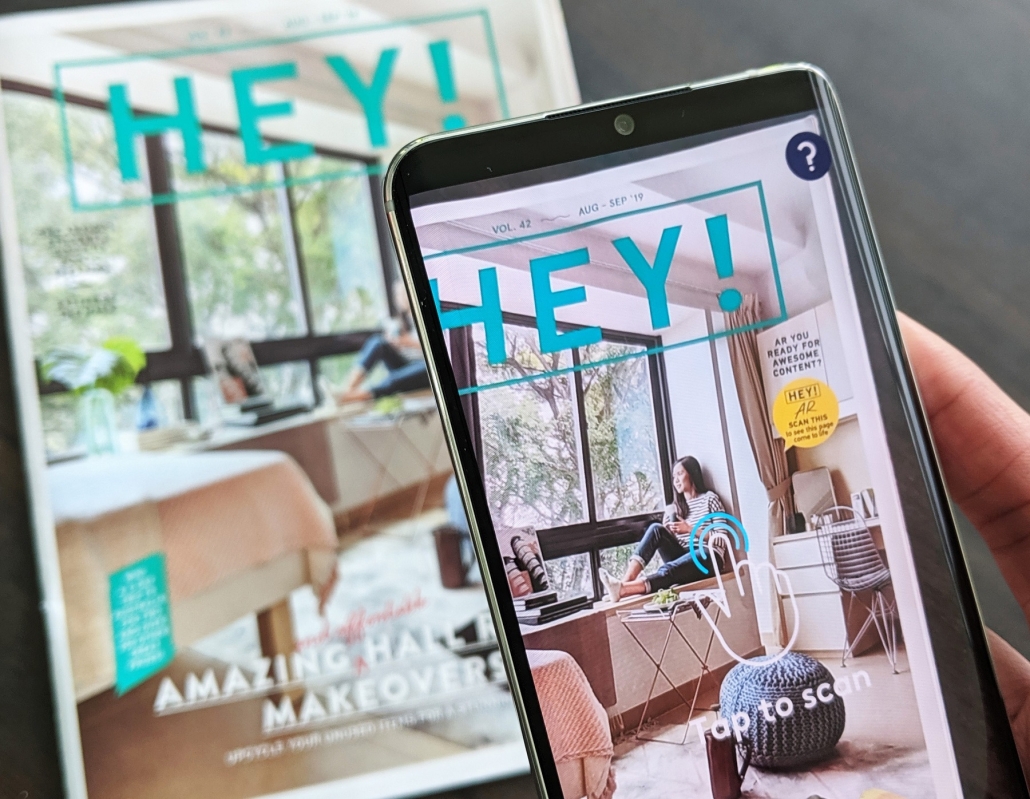
Scan the magazine cover to see the rest of the room: As a “smart magazine” that combines print with augmented reality, NTU’s magazine HEY! uses video, 3D models and 3D animations to engage its young target audiences. The augmented reality features are produced in-house and creatively applied across the magazine to make the pages “come alive”.
Dr. Chiong: I am fascinated by technology and what it can do. In the past, many in corporate communication focused on media publicity but the landscape has changed dramatically with digital technologies like mobile applications and social media. I’m especially excited by augmented reality and virtual reality because they bring new dimensions to storytelling.
At NTU, we revamped our print magazine HEY! into an augmented reality (AR) title to reinforce NTU’s Smart Campus branding. All photos in the magazine are taken using smartphones including the cover. Here’s an example of how we use AR. On a HEY! cover showing an NTU dorm, when scanned with the HEY! AR app, the photo seamlessly transitions into a video showing other parts of the room, giving the illusion of a 360-degree photo.
To create such communication effects requires a change in the editorial process. The creative director needs to decide on the cover photo on the spot – instead of poring over hundreds of photos back in the office – so that the video producer can ensure the video flows seamlessly from the chosen photo.
We also experiment with 3D models of objects that readers can scan and then bring into their immediate environment and interact with. Besides videos and 3D models, we also experiment with animation, sound and space. We have been very energised by all these new possibilities to better tell a story.
One of the best things about working in a university is that we are big on exploring the unknown. I have been very motivated to experiment with new ways of communication.
ICCO: Can you speak to an underlying strategy that you have applied across your work over the years that you are personally proud of and tell us why you think it is so successful?
Dr. Chiong: When I first joined NTU in 2010, my strategy was to integrate three existing pillars of communication – media publicity, content marketing, marketing communication — and to introduce social media as part of the university’s communication strategy. Later, I read in communication literature that there was a new term coined for this called PESO which stands for paid, earned, shared and owned media.
The PESO model of communication has served NTU well, given its diverse target audiences. It has also helped us to be smarter in the use of our modest resources. Most valuable to me is that the integrated approach ensures team members are not siloed in their area of work and learn to work collaboratively. I always confidently tell new staff joining us that here, you will get to broaden your skills to cover the full spectrum of communication work. This will lay their foundations to become a communication leader one day.
To help us in planning, scheduling and content sharing, we designed a bespoke system on Airtable which enables us to track more than 1200 communication activities a year. When we shifted to remote working during the COVID-19 pandemic, it had no impact on our productivity and teamwork which continued to be high.
ICCO: As ICCO’s PR Leader of the Year, can you tell us what the most important attributes are for a successful leader, particularly in communications?
Dr. Chiong: All leaders need to have a vision and be able to show the way to achieve the vision.
A communication leader needs to combine strategic insight and creativity with their vision and leadership to help fulfil the organisation’s mission and objectives. He/she sets clear goals, manages complexities and upholds high ethical standards.
In my experience having led several in-house communication teams, all communicators, no matter how junior, want to know how their work can help in achieving their organisation’s goals.
As a manager, it is important to motivate the team to work towards the organisation’s broad objectives. So I value qualities like teamwork, creativity and out-of-the-box thinking.
I place emphasis on the professional development of my team members. I may not work directly with each one of them on a daily basis but I observe and assess their individual skills, aptitude, interests and attitude. Working closely with my deputies, we expose them to a range of assignments and experiences that will stretch them and build their competencies. This also helps to prevent them from getting bored or stuck in a rut, or suffering from burnout.
I’m proud that in the last three years, three of my junior staff have been recognised with Newcomer of the Year awards. At NTU, we have also won nine international Team of the Year Awards since 2015 – the biggest being the 2020 ICCO In-house Digital Team of the Year Award – so thank you, ICCO!
I’m very grateful to award organisers and judges for all their hard work as the international peer recognition goes a long way towards motivating staff to continue to strive for excellence in communication.
ICCO: Having developed an NTU in-house team of at least 30 members representing multiple ethnicities and age groups, can you explain the benefits of such diversity, and how do you ensure all voices and perspectives can be heard?
Dr. Chiong: NTU is a cosmopolitan university competing globally and Singapore is a multicultural society. Operating in such a richly diverse environment coupled with NTU’s wide-ranging set of stakeholders, our communication can only benefit from having a diverse team of different age groups and ethnicities working on it. Because we work collaboratively and not in a linear fashion, many pairs of eyes will go through a piece of work. The idea is not for one person doing the assignment to send it through to his/her immediate supervisor for approval. They engage different team members and other internal stakeholders who bring different sensibilities and talents to improve the final product.
ICCO: The Global Women in PR annual index found that in 2021 73% of women “would be more likely to choose a job that offered flexible working over one that did not”. What is your experience of this within your team, and has NTU adapted to accommodate this growing need?
Dr. Chiong: Covid-19 has shown us that flexible and remote working doesn’t have to affect the quality of the work we do, particularly in communication.
A hybrid work arrangement could become standard in the future. Long term remote-only working will affect team bonding as Zoom sessions cannot replicate real life social interactions – those corridor and pantry chats that are good for camaraderie and the sparking of serendipitous ideas.
But equally, a change in environment can spark creative ideas. Clocking fixed hours at the same office desk may not be that good for creativity. If a hybrid arrangement is going to thrive in the workplace, it will need all staff to demonstrate the self-discipline and ability to deliver on their assignments.
My team has been operating on a hybrid work arrangement and we recently had a team bonding event where internal awards for the last year were presented. The nominees presented the challenges they faced and how they overcame them, so it was a wonderful sharing session for everyone to feast on some best practices and lessons learnt. The winner in each of the five categories was chosen by their peers. We had not brought every team member together in person for a long time, and I could see that everyone was delighted to be able to finally be in the same room.
ICCO: Retaining talent is the top priority issue for PR right now. What advice do you have for junior and mid-level communication professionals, who want to stay in the industry for the long haul, particularly younger women? And what can leaders do to improve talent retention?
Dr. Chiong: I think the age-old proverb “a rolling stone gathers no moss” offers a caution for junior communicators. It takes time to learn about a new industry, to roll out your communication programmes, and show your results. If you keep hopping around, you will never stay long enough to show any results that are truly your own.
Many junior and mid-level communicators get into the field because they love the creative aspects of the work. But a passion for words and an aesthetic eye are not enough. A full-fledged communicator must also learn to conduct formative and post- campaign research, have a keen interest in analytics and in new emerging digital technologies.
As for talent retention, I think communicators will stay in a job where they feel their work is strategic and valued by the organisation, where there are opportunities to experiment and grow, and where their professionalism is recognised.



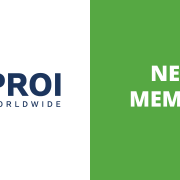

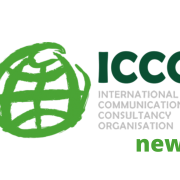
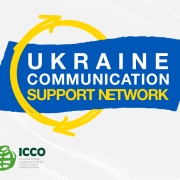
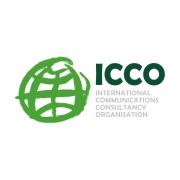
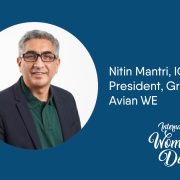
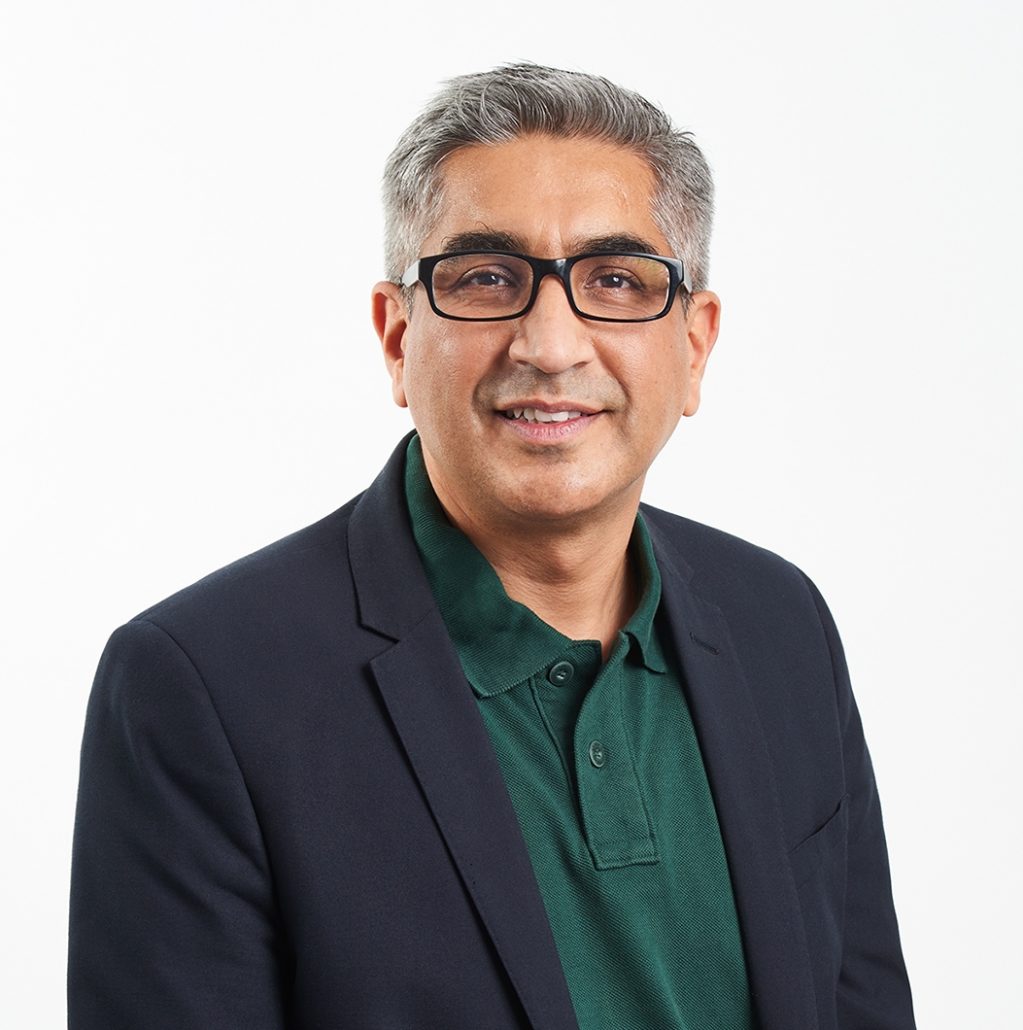




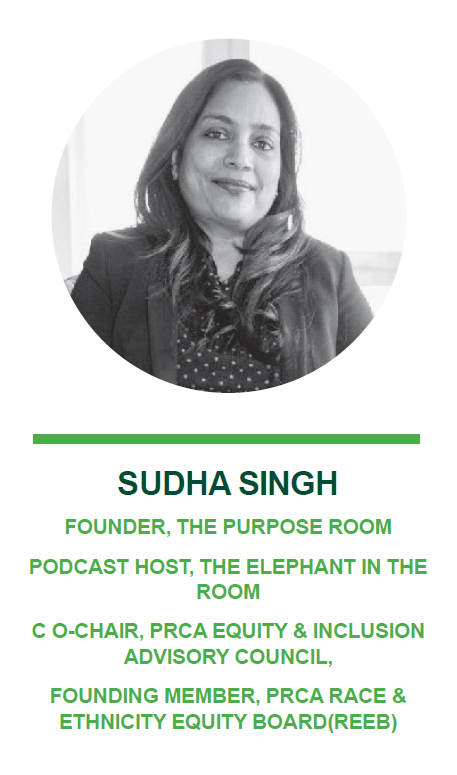
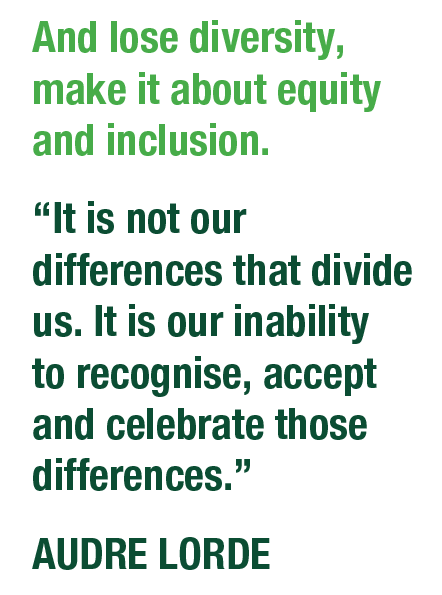 To be authentic live the values that we preach. Don’t just say it to other people or for your clients, embed inclusion into your business. Start with C-Suite buy in and accountability; listen to your employees and stakeholders; create an inclusive hiring process; be transparent about the pay gap; consider intersectionality; be a sponsor and monitor constantly.
To be authentic live the values that we preach. Don’t just say it to other people or for your clients, embed inclusion into your business. Start with C-Suite buy in and accountability; listen to your employees and stakeholders; create an inclusive hiring process; be transparent about the pay gap; consider intersectionality; be a sponsor and monitor constantly.